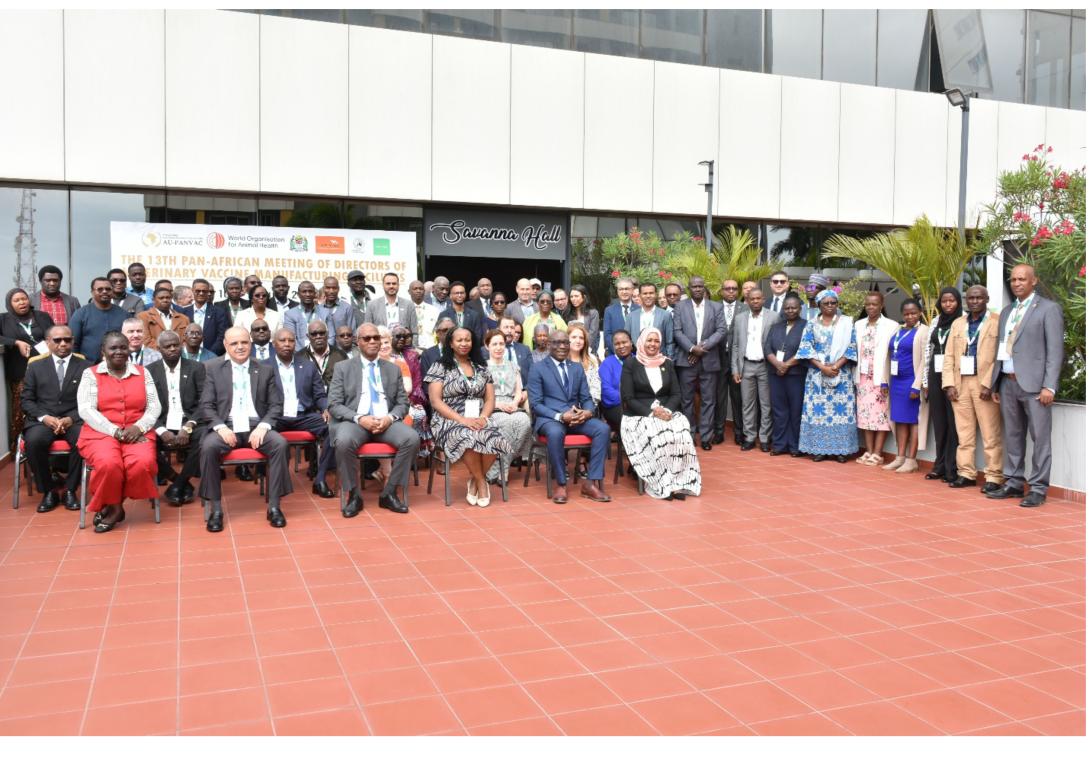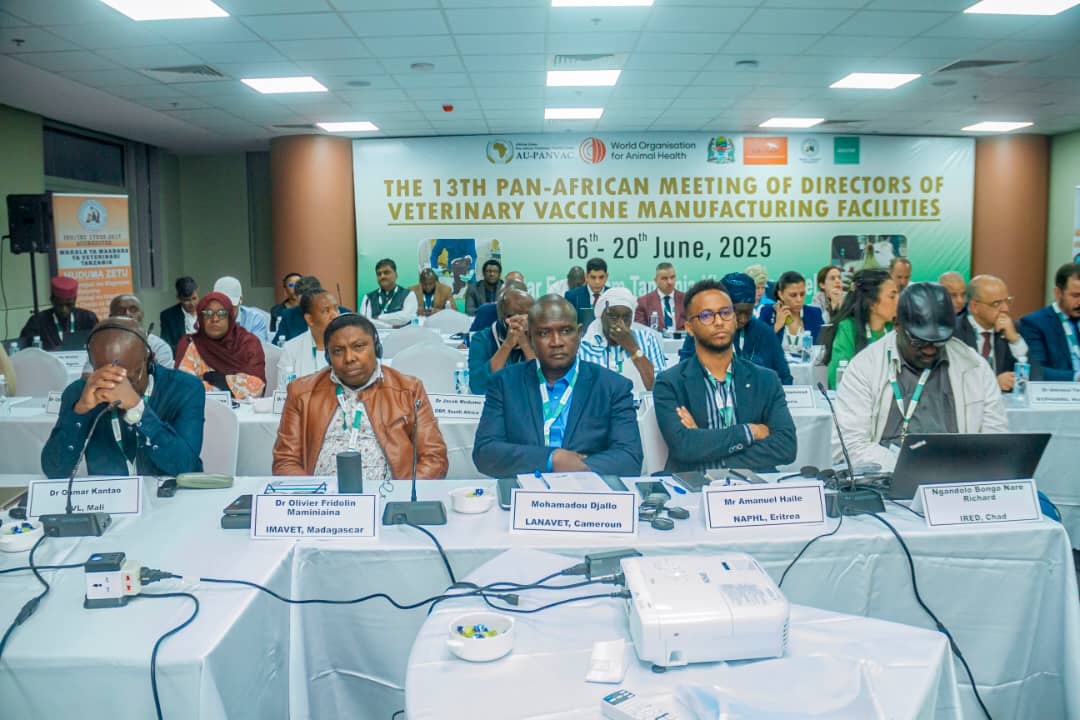
The 13th Pan-African Meeting of Directors of Veterinary Vaccine Manufacturing Facilities

Dar es Salaam, Tanzania, 19-20 June 2025, the 13th Pan African Meeting of Directors of Veterinary Vaccine Laboratories was held in KingJada Hotel, from 19 to 20 June 2025 as back-to-back meeting from the Workshop on the “Socialization of the African Union Harmonized Guideline for Registration of PPR vaccine in Africa” held from 16 to 18 June 2025.
The meeting organized by AU-PANVAC, brought together the Directors or Representatives from National Veterinary Vaccine Producing Laboratories in Africa and oversea. The meeting was also attended by the AU-PANVAC Steering Committee members, Representatives of the Food and Agriculture Organisation (FAO) of the United Nations (Rome), the World Organisation for Animal Health (WOAH), AU-IBAR and GALVmed.
The main objective of this two-days meeting was to review the achievements of AU-PANVAC and the challenges related to vaccine quality control. The meeting was also an opportunity to discuss the innovative approaches and technologies applicable to quality control and the production of veterinary vaccine in African.
The meeting highlighted the urgent need to improve the quality and availability of veterinary vaccines. AU-PANVAC reported rigorous quality control activities, evaluating 300 to 400 vaccine batches annually in more than 44 laboratories. It should be noted that PPR vaccines have demonstrated encouraging genetic stability and that progress is being made in the certification of thermostable vaccines. However, challenges remain; for example, approximately 14% of vaccines tested during the 2023-2024 period failed quality control, mainly due to sterility and efficacy issues. This reality highlights the current quality assurance challenges that must be addressed in order to build farmer confidence and maximise the impact of vaccines. National laboratories also presented their vaccine production capacities and the innovations in production.
 The following keys recommendations were made:
The following keys recommendations were made:
-
Manufacturers to make sure that the labelling information on vaccine vials are based on scientific information from the WOAH standards and peer reviewed publications. This is to ensure that the provided information on labels is factual and science based.
-
The participants noted the existence of the production several LSD vaccine strains by vaccine manufacturers and the issue of possible associated adverse reactions with some strains and virus recombination. Therefore, the participants recommend the use of single LSD Vaccine strain in Africa after thoroughly evaluated of the safety and to prevent potential recombination.
-
AU-PANVAC to collaborate with WOAH FMD Reference to select FMD virus reference panels strain for the other regions of Africa in addition to the existing East African FMD panels. These panel will be useful for assessing FMD vaccine Quality.
-
WOAH to give access to AU-PANVAC to the WOAH veterinary surveillance system for substandard and falsified veterinary medical products (VSAFE) to facilitate reporting of incidences of falsified and substandard vaccines encountered and support quality testing for suspected substandard vaccines when needed.
-
The AU-PANVAC initiative to develop the Continental GMP Guidelines for auditing and certification of African vaccine manufacturers is commendable and participants urged for the finalization of the draft guideline in collaboration with stakeholders.
-
The effort of AU-PANVAC to characterize vaccine master seeds should continue for other vaccine seeds which will provide appropriate data to support vaccine registration.
-
AU-PANVAC to expand the existing vaccine seed repository to include seeds for other priority diseases.
-
AU-PANVAC is encouraged to continue research to enhance CBPP vaccine production process and to support laboratories in increasing their production capacity
-
AU-PANVAC to complete the validation process of CBPP ELISA kit.
-
Manufacturers shall submit diluent with vaccine to AU-PANVAC for quality control testing to ensure proper vaccine delivery
-
AU-PANVAC should be strengthened in manpower to fully embark on all activities and mandates
In conclusion, the 13th Pan-African Meeting of Veterinary Vaccine Laboratory Directors reaffirmed the essential role of AU-PANVAC in ensuring the quality, safety and availability of veterinary vaccines across Africa. Although significant progress has been made, particularly in vaccine quality control, thermostable vaccine certification and guideline development, persistent challenges such as vaccine failures, production constraints and limited capacity remain. The recommendations adopted provide a clear roadmap for strengthening vaccine quality, harmonising standards and promoting innovation in vaccine production. Participants emphasised the need for continued collaboration between Member States, AU-PANVAC, WOAH, FAO, AU-IBAR and other stakeholders to safeguard animal health, improve livestock productivity and contribute to food security and livelihoods across the continent.
